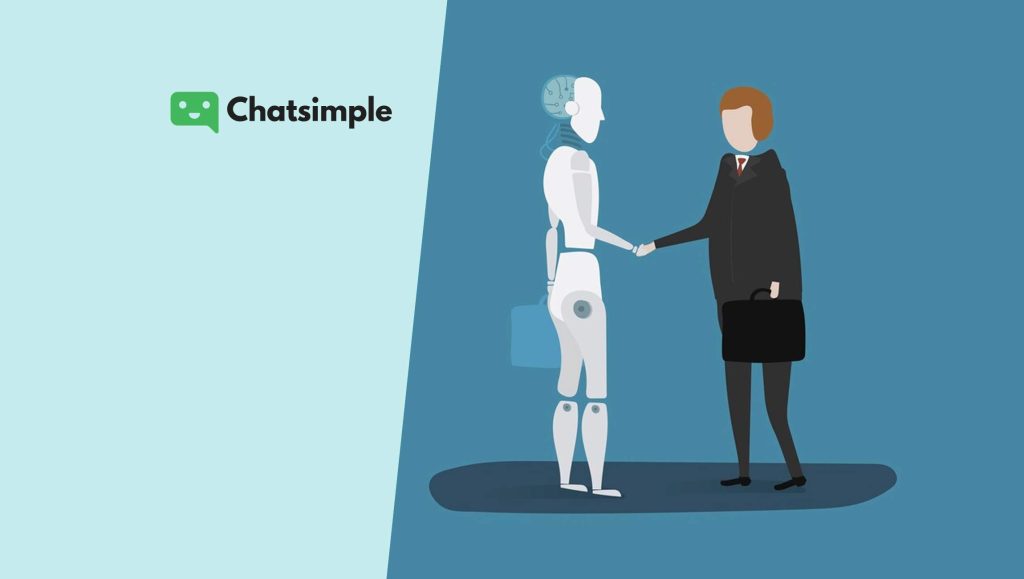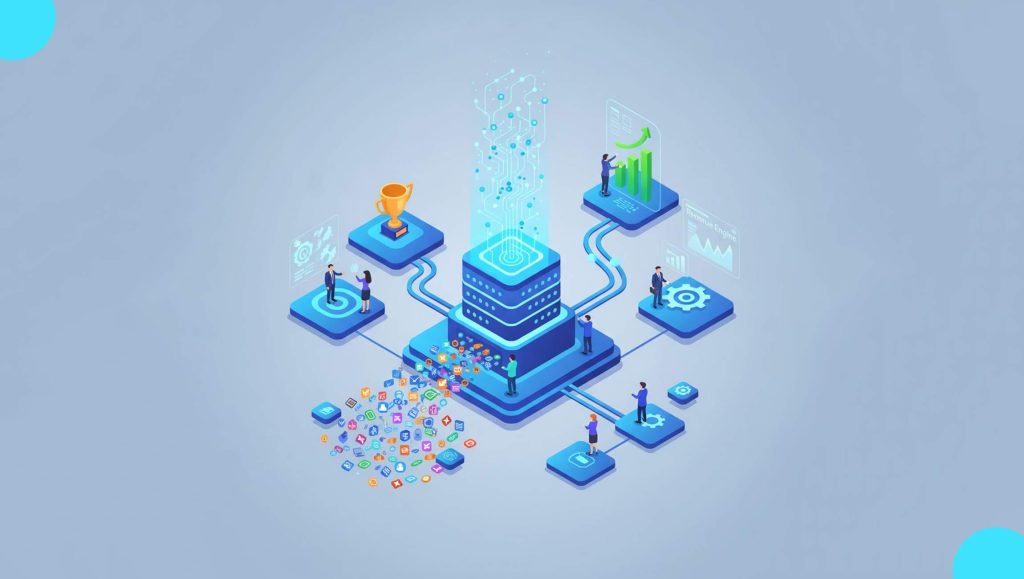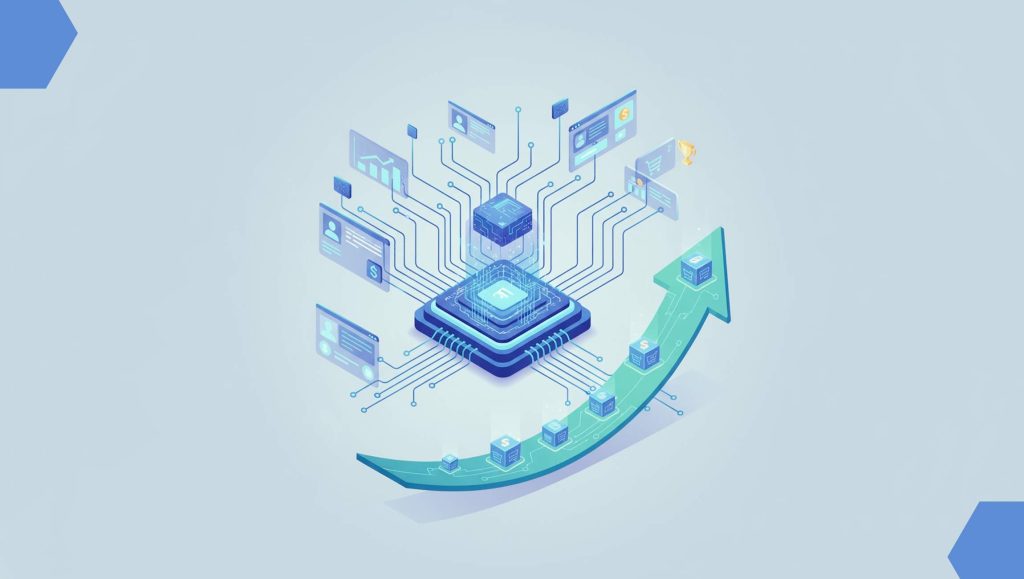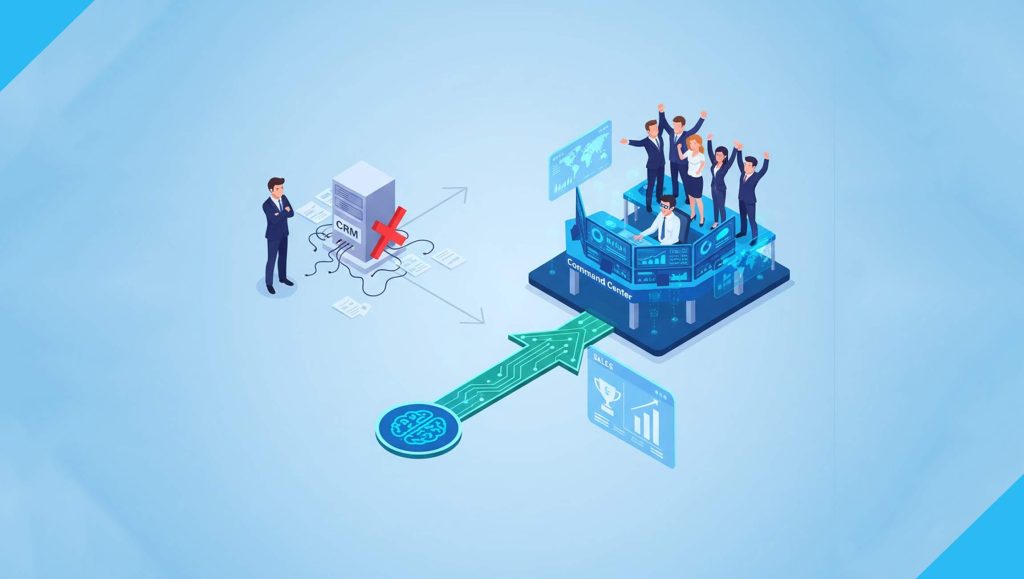Find the perfect balance between using AI and human agents in sales and see how they bring out the best in both.
B2B sales rely on nurturing client relations.
You can indeed automate some aspects of relationship building, but not all of them. Human interactions give a face to trust in sales experiences that have become more digital. To thrive in modern sales, you must find the right balance between AI and humans. Collaboration should bring out the best in both to make potential buyers happy and feel more supported.
When websites run with one-size-fits-all content, you need someone to listen to what visitors actually want. This can be an AI sales agent, active 24/7 on the website to assist visitors’ journeys.”
— Vinay Raj
Pairing generative AI-based chatbot automation with a human agent’s relationship-building skills will make your sales more effective. Before we dive deeper into exploring this collaboration, let’s take a look at the current use of generative AI for sales.
Read More: Subskribe Announces Zeppa, New CPQ Customization Language
Exploring the use of generative AI in sales
Generative AI, or generative AI bots, are changing how businesses function. 84% of companies believe AI chatbots will be essential in customer communication. They can automate sales experience while making human reps more productive in building client relationships.
Sales involve frequent client interactions, administrative work, and management, in addition to their key relationship-building responsibilities. AI can manage repetitive and monotonous tasks that don’t necessarily require a human agent’s expertise, such as capturing a lead, sending a follow-up, and reminding a salesperson about a promise they made.
AI can take over these tasks, which would increase efficiency. Generative AI will be like a virtual assistant, supporting human agents to be better at selling and assisting buyers with confusion beyond AI’s problem-solving abilities.
Did you know? Modern AI sales agents like Chatsimple are trained on your website’s content and the training materials you supply. It answers your clients’ queries on the website and leads them toward sharing their details for lead generation.
AI systems are going to be every salesperson’s essential digital assistant. According to McKinsey’s 2024 report on the adoption of generative AI, the most significant increase in value generation since 2023 happened in the marketing and sales sector.
Clara Shih, CEO of Salesforce AI, says, “Generative AI will reshape how every team operates. Just like with the adoption of the Internet, generative AI represents a generational opportunity to raise team capabilities, skills, and potential throughout the company.”
In the sales and marketing departments, you can use AI for:
Generating leads: When websites run with one-size-fits-all content, you need someone to listen to what visitors actually want and what the purpose of their visit is. This special someone can be an AI sales agent, active 24/7 on the website to assist visitors’ journeys.
The agent will address complicated questions, doubts, and queries, helping visitors navigate the website effectively. In this process, some agents encourage the audience to share their information, facilitating lead generation.
AI sales agent on the website doesn’t only help in lead generation but also:
Reduces bounce rate
Increases time spent on a website
Builds trust and credibility for your business with the help offered.
Did you know? Gallery Vision, a leading music distribution and publishing company, added 1000 new leads monthly with Chatsimple’s AI sales agent. It has GPT-4o’s capabilities to make the agent even more efficient.
Such tools automate a salesperson’s time asking relevant questions to qualify the lead. Generative AI does the redundant administrative work, while its human counterpart nurtures relationships with much-needed personalization.
Plugging generative AI into your website makes it easier to understand what visitors actually want. In this case, marketing doesn’t need to spend ample time researching sales demos to find opportunities to create content that encourages self-service. The AI sales agent delivers insights into the most searched keywords or links that get many clicks. You get to see what users seek and create pages on your website to address such needs.
Improving sales interaction: Sales agents powered with generative AI automate follow-ups with leads based on the questions they ask on your website. This keeps the context alive while adding necessary personalization to automated interactions.
The agents integrate with popular CRMs, providing insights into why visitors or potential customers landed on your website. Salespeople can base their outreaches on phone calls, emails, or messaging based on historical interactions with the prospects, keeping them more aligned toward prospects’ actual needs.
Read More: SalesTechStar Interview with Allison Metcalfe, CRO at Cloudinary
Creating meeting notes: How many meetings do you attend in a day?
HubSpot’s sales survey indicates that salespeople spend 34% of their time in external meetings and 12% in internal meetings. This creates a mess when following through with the action items and tasks discussed in these meetings, especially if these meetings happen on video conferencing platforms like Zoom or Gmeet.
Generative AI can automate the notetaking part here and structure the discussion as meeting minutes, providing key takeaways and action items.
Did you know? Reelay’s AI meeting assistant helps you use generative AI in sales for automated notetaking.
Benefits of using Generative AI for sales
Apart from the use cases and benefits discussed above, there are various other advantages of using AI in sales, including:
Content production. 82% of sales specialists have used AI for basic text piece creation and copywriting. By using automation, companies can maintain a consistent brand voice, which helps them use their human resources for other strategic work.
Cost and time savings. According to a Human Resources Director report from 2023, employees who used generative AI saved an average of 1.75 hours. Generative AI can reduce organizations’ operational costs and save time by automating repetitive tasks. Companies can then reallocate their resources to more significant areas.
Improved customer experience: Generative AI helps to provide personalized, quick, and accurate responses to customer inquiries. This feature plays a significant role in improving client experience, which helps to maintain consumer loyalty and satisfaction. According to a McKinsey report, generative AI-powered solutions increased issue resolution by 14% per hour. AI in customer care increased the department’s productivity by 30 – 45%.





















